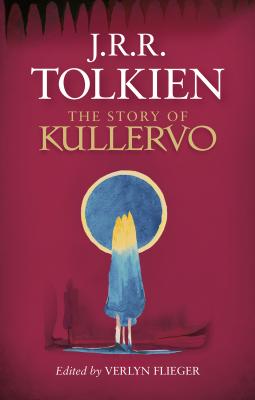The Story of Kullervo. Verlyn Flieger
Читать онлайн.| Название | The Story of Kullervo |
|---|---|
| Автор произведения | Verlyn Flieger |
| Жанр | Сказки |
| Серия | |
| Издательство | Сказки |
| Год выпуска | 0 |
| isbn | 9780008131371 |
Nor the cherry drive them homeward
Send thou then thy better servants,
Send the daughters of Ilwinti
To guard my kine from danger
And protect my horned cattle
For a many are thy maidens
At thy bidding in Manoine
And skilled to herd the white kine
On the blue meads of Ilwinti
Until Ukko comes to milk them
And gives drink to thirsty Kēme.
Come thou maidens great and ancient
Mighty daughters of the Heaven
Come thou children of Malōlo
At Ilukko’s mighty bidding
O [Uorlen?] most wise one
Do thou guard my flock from evil
Where the willows will not ward them
Out across the quaking marshland
Where the surface ever shifteth
And the greedy depths are gulping.
O thou Sampia most lovely
Blow the honey-horn most gaily.
Where the alder will not tend them
Do thou pasture all my cattle
Making flowers upon the hummocks:
With the melody of the mead-horn
Make thou fair this heathland border
And enchant the skirting forest
That my kine have food and fodder,
And have golden hay in plenty
And the heads of silver grasses.
And Telenda thy companion
Where the rowan will not tend them
Dig my cattle wells all silver
Down on both sides of their pasture
With your straying feet of magic
Cause the grey springs to spout coolly
And the streams that flow by swiftly
And the speedy running rivers
Twixt the shining banks of grassland
To give drink of honey sweetness
That the herd may suck the water
And the juice may trickle richly
To their swelling teeming udders
And the milk may flow in runlets
And may foam in streams of whiteness.
But Kaltūse thrifty mistress
And arrester of all evil,
Where the wild things will not guard them
Fend the sprite of ill far from them
That no idle hands do milk them
And their milk on earth be wasted
That no drops flow down to Pūlu
And that Tanto drink not of it
But that when at Kame at milk tide
Then their milkstreams may be swollen
And the pails be overflowing
And the good wife’s heart be gladdened.
Little daughter of the forests
Clad in soft and beauteous garments
With thy golden hair so lovely
And thy shoon of scarlet leather,
When the cherry will not lead them
Be their neatherd and their shepherd.
When the sun to rest has sunken
And the bird of Eve is singing
As the twilight draweth closer
Speak thou to my horned creatures
Saying come ye hoofed cattle
Come ye homeward trending homeward.
In the house ’tis glad and pleasant
Where the floor is sweet for resting
On the waste ’tis ill to wander
Looming down the empty shorelands
Of the many lakes of Sutse.
Therefore come ye horned creature
And the women fire will kindle
In the field of honeyed grasses
On the ground o’ergrown with berries.
[The following lines are offset to indicate a change of tone. Kirby’s edition does not so distinguish them, but notes in the Argument at the head of the Runo that it contains ‘the usual prayers and charms’ (Kirby Vol. 2, p. 78). Magoun gives the lines the heading ‘Charms for Getting Cattle Home, Lines 273–314’ (Magoun, p. 232).]
Then Palikki’s little damsel
And Telenda her companion
Take a whip of birch to scourge them
And of juniper to drive them
From the hold of Samyan’s cattle
And the gloomy slopes of alder
In the milktide of the evening.
[As above, these lines are offset to indicate a shift in tone and separate them from those preceding. Kirby’s Argument notes a charm for ‘protection from bears in the pastures’ (p. 78), while Magoun supplies the heading ‘Admonitory Charms Against Bears, Lines 315–542 (p. 232).]
O thou Uru O my darling
My Honeypaw that rules the forest
Let us call a truce together
In the fine days of the summer
In the good Creator’s summer
In the days of Ilu’s laughter
That thou sleepst upon the meadow
With thine ears thrust into stubble
Or conceal thee in the thickets
That thou mayst not hear cowbells
Nor the talking of the herdsman.
Let the tinkling and the lowing
And the ringing in the heathland
Put no frenzy yet upon thee
Nor thy teeth be seized with longing.
Rather wander in the marshes
And the tangle of the
